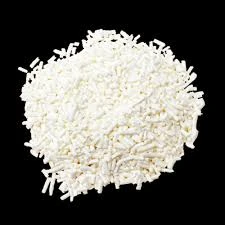
Exploring the Uses and Effects of E440 Food Additive in Food Industry
Understanding E440 Food Additive Its Role and Implications
Food additives are substances that are added to food to enhance its flavor, appearance, or shelf life. Among these numerous additives, E440 stands out as an important emulsifier and stabilizer, commonly derived from plant sources. This article delves into the nature of E440, its applications, safety concerns, and its role in modern food processing.
What is E440?
E440 refers to a category of food additives that includes pectin and its related compounds, primarily obtained from fruit. Pectin is a naturally occurring carbohydrate found in the cell walls of fruits, especially citrus fruits and apples. In the food industry, E440 is utilized for its gelling, thickening, and stabilizing properties, making it essential in the production of jams, jellies, yogurt, and confectionery.
The use of E440 helps in achieving the desired texture and consistency in various food products. For instance, when making jam, pectin enables the mixture to gel effectively, ensuring that the final product has the right spreadable consistency. However, it’s not only limited to jams; E440 plays a crucial role in the manufacturing of other products like sauces, fruit fillings, and dairy products—enhancing their mouthfeel and stability.
Applications of E440
The applications of E440 in the food industry are diverse. Some of its primary uses include
1. Jams and Jellies E440 is the backbone of successful jam and jelly production, providing essential gelling properties. 2. Beverages It is used to stabilize fruit juices and soft drinks, preventing the separation of ingredients and maintaining a uniform mixture.
3. Dairy Products In yogurts and ice creams, E440 aids in improving texture and creating a creamier mouthfeel.
4. Confectionery In candies, pectin acts as a gelling agent, contributing to the chewy or gummy textures that consumers enjoy.
e440 food additive

Safety and Regulatory Status
E440 has been deemed safe for consumption by several food safety authorities, including the European Food Safety Authority (EFSA) and the U.S. Food and Drug Administration (FDA). It is classified as Generally Recognized As Safe (GRAS) when used in appropriate amounts. However, as with any additive, there are guidelines in place to ensure that it is used safely and effectively.
Some individuals may experience allergies or sensitivities to certain sources of pectin. As a result, it is essential for manufacturers to clearly label their products, especially those derived from common allergens like apples or citrus fruits.
Environmental and Health Considerations
One of the advantages of E440 is its natural origin, which provides an alternative to synthetic additives. Consumers are increasingly seeking clean-label products, and natural ingredients like pectin align with this trend. Thus, E440 is not only beneficial for product quality but also appeals to environmentally conscious consumers looking for wholesome food options.
However, the extraction and processing of pectin may have environmental implications, such as agricultural practices and sourcing sustainability. As the demand for natural additives continues to grow, it becomes essential for the food industry to consider sustainable sourcing practices for E440.
Conclusion
E440 serves as a vital food additive that enhances the quality and safety of numerous food products. Its multifunctional properties contribute significantly to the texture, stability, and overall consumer experience of various foods. As the food industry evolves, understanding and responsibly utilizing such additives will be essential in meeting dietary preferences and maintaining food safety standards. With continued research and innovation, the role of E440 and similar additives will remain pivotal in shaping the future of food technology.
-
Pure Sodium Dichloroisocyanurate Dihydrate | Powerful DisinfectantNewsAug.29,2025
-
Industrial Chemicals: Quality & Purity for Every IndustryNewsAug.28,2025
-
Nitrile Rubber Honoring Strict Production StandardsNewsAug.22,2025
-
Aspartame Ingredients Honoring Food Safety ValuesNewsAug.22,2025
-
Fertilizer for Balanced Plant NutritionNewsAug.22,2025
-
Cyanide Gold Processing with High Purity AdditivesNewsAug.22,2025
-
Formic Acid in Textile Dyeing ApplicationsNewsAug.22,2025
Hebei Tenger Chemical Technology Co., Ltd. focuses on the chemical industry and is committed to the export service of chemical raw materials.
-

view more DiethanolisopropanolamineIn the ever-growing field of chemical solutions, diethanolisopropanolamine (DEIPA) stands out as a versatile and important compound. Due to its unique chemical structure and properties, DEIPA is of interest to various industries including construction, personal care, and agriculture. -

view more TriisopropanolamineTriisopropanolamine (TIPA) alkanol amine substance, is a kind of alcohol amine compound with amino and alcohol hydroxyl, and because of its molecules contains both amino and hydroxyl. -

view more Tetramethyl Thiuram DisulfideTetramethyl thiuram disulfide, also known as TMTD, is a white to light-yellow powder with a distinct sulfur-like odor. It is soluble in organic solvents such as benzene, acetone, and ethyl acetate, making it highly versatile for use in different formulations. TMTD is known for its excellent vulcanization acceleration properties, which makes it a key ingredient in the production of rubber products. Additionally, it acts as an effective fungicide and bactericide, making it valuable in agricultural applications. Its high purity and stability ensure consistent performance, making it a preferred choice for manufacturers across various industries.





